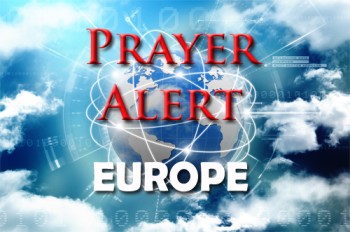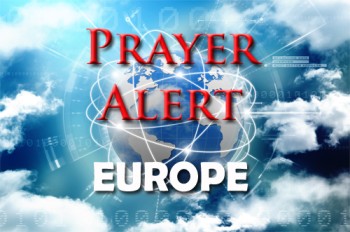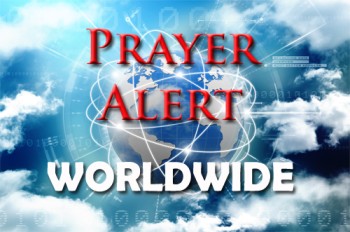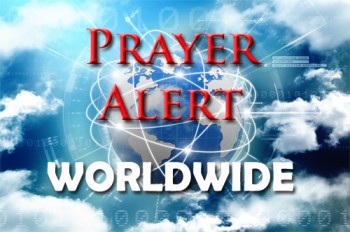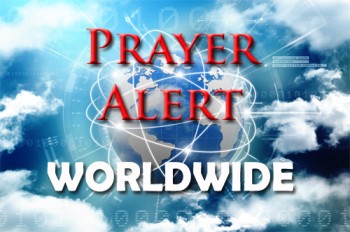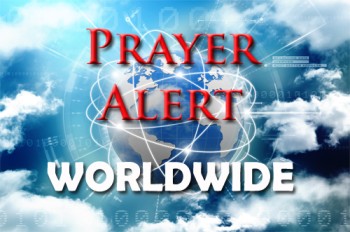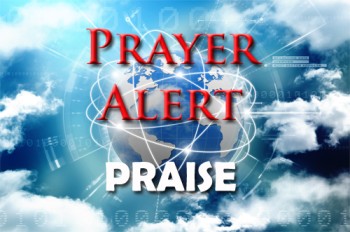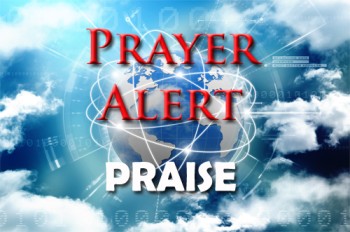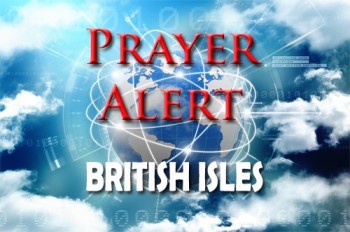
David Fletcher
David Fletcher is Prayer Alert’s Editor.
He is part of a voluntary team who research, proof-read and publish Prayer Alert each week.
If you would like to make a donation towards our running costs, please click here.
Ukraine has been shaken by its most serious political crisis since the start of Russia’s full-scale invasion, after parliament voted to dismiss the energy and justice ministers in response to a major corruption investigation. The probe centres on an alleged $100 million scheme involving contracting at the state nuclear agency, implicating figures with close ties to the presidency and fuelling public outrage during a time of national sacrifice. Justice minister German Galushchenko and energy minister Svitlana Hrynchuk both resigned under pressure from Volodymyr Zelensky before lawmakers voted to remove them. While both deny wrongdoing, the scandal has energised opposition voices demanding deeper reforms, including changes within the president’s inner circle. Anti-corruption authorities have said their investigation, whose chief suspect is Zelenskiy's former business partner, includes other state agencies. With Ukraine still fighting for its survival against Russian aggression, the crisis underscores the critical need for transparency, accountability, and public trust in wartime leadership.
Poland is one of the highest-risk areas for trafficking in Europe, with 209,000 people currently trapped in modern slavery and many more vulnerable due to migration and regional conflict. Women and children make up the overwhelming majority of those exploited for sex. The country’s geography - bordering seven nations and serving as a transit hub - makes it a key route for traffickers. Although Poland has earned top marks from the USA for its commitment to combating exploitation, law enforcement resources remain stretched too thin to meet the growing need for protection. International Justice Mission (IJM), the world’s largest anti-trafficking organisation, has now launched a formal partnership in Poland, building on its success in Romania and other regions. Working with authorities, NGOs, and survivors, IJM will focus on strengthening investigations, ensuring survivor care, and driving systemic change, with the aim of protecting millions from abuse and exploitation.
Gaza’s small Christian community, long rooted in the land where their faith began, is now confronting an existential crossroads. As a fragile ceasefire wavers and destruction remains widespread, believers like Elias al-Jalda face the stark question of whether their community can survive. With homes destroyed and more than two years spent sheltering in churches - some of which were themselves struck, causing tragic loss of life - daily existence has become a struggle for food, water and safety. Yet amid the devastation, they have discovered a profound solidarity, forming close-knit bonds in shared suffering. Many are choosing to leave while they can, echoing a wider regional trend in which ancient Christian populations across the Middle East have dramatically dwindled. Still, Elias and others hold on to hope, believing that Christian presence should remain in the birthplace of their faith.
Women and girls in Ethiopia’s Amhara region are facing a hidden crisis of conflict-related sexual violence as fighting between the national army and Fano militias continues. Survivors describe soldiers entering homes, threatening family members, and committing rape as a weapon of intimidation and punishment. Many victims, some as young as eight, are left in physical pain, psychological trauma, and deep shame, fearing stigma from their communities and even from their churches. Limited medical access means many do not receive the urgent treatment which could prevent HIV or pregnancy. Health workers report rising cases, but say that the numbers available represent only a fraction of the suffering, especially as law and order has broken down and accountability is rare. Rights groups warn that the violence reflects a pattern of impunity within Ethiopia’s security forces. For women like Enat, who is now raising a child conceived by rape, survival is overshadowed by fear, loss, and an uncertain future - yet also remarkable courage.
Tim Baker has spent more than four decades crafting world-class bows for violins and cellos - the very tools which, as he puts it, give musicians their ‘voice’. But now his longstanding craft is caught in the middle of an urgent conservation battle. Brazilwood, also known as pernambuco, is the prized, endangered timber used in most professional bows, beloved for its strength and resonance. With the tree’s population reduced by 84% due to centuries of overharvesting and ongoing illegal logging, Brazil is pushing for the highest level of international trade protection. Advocates say drastic action is needed to save the species, but musicians fear that tighter restrictions could ground performers, expose their bows to confiscation, and make global touring nearly impossible without complex permits. Conservationists and performers alike agree that the status quo is unsustainable, but they need to agree on a plan that protects both music and nature.
In Alexandra, South Africa’s oldest township, on the outskirts of Johannesburg, local volunteers known as the Alexandra Water Warriors are working tirelessly to protect their community from worsening flood risks and pollution. Using garbage-trapping nets across the Jukskei River, they are trying to prevent debris from clogging the waterway - a growing danger linked to illegal dumping and climate-intensified flash floods. The stakes are high: when the river overflows, bridges disappear underwater and children are unable to reach school. Despite limited resources, the Water Warriors plant native trees, clean riverbanks, and recycle collected waste into items that can bring in income. Their efforts have significantly reduced visible pollution, demonstrating the power of grassroots action in a place overshadowed by extreme inequality: Alexandra lies within sight of affluent Sandton, yet lacks basic infrastructure support. As world leaders gather in Johannesburg to discuss climate resilience, communities like Alexandra urgently need the global partnership and investment they cannot secure alone.
South Korea’s proposal for military talks with North Korea reflects a cautious but important effort to prevent dangerous escalation along the demilitarised zone. After months of incidents where North Korean troops crossed the Military Demarcation Line (MDL) while constructing defensive barriers, Seoul is urging both sides to reaffirm a clear and mutually recognised boundary. Missing marker posts from the 1953 armistice have led to differing interpretations of where the line actually lies, increasing the risk of accidental clashes as tensions rise under Kim Jong-un’s recent directive to harden the border. This marks the first direct proposal for dialogue since Lee Jae Myung took office as South Korea’s president, signalling a willingness to pursue communication even as military channels remain largely severed. With warning shots fired and provocations mounting, aligning expectations on the MDL could help restore stability and rebuild fragile trust. Whether Pyongyang will respond remains uncertain, but Seoul hopes the move sparks broader engagement for peace.
Juman al Qawasmi, once married to a Hamas member and raised in a culture of deep hostility toward Israel and Christianity, experienced a dramatic encounter with Jesus that transformed her life. During the 2014 Gaza conflict, after praying desperately for God to reveal Himself, she dreamed of Jesus standing before her, telling her, 'You are my daughter; don’t be afraid’. She described an overwhelming peace she had never known in Islam, where she felt she could never do enough. Juman had already begun questioning a belief system marked by violence, yet she had never heard the name Yeshua before this encounter. Born in Qatar to a father who was among Hamas’s founders, she once voted for Hamas but now openly rejects its agenda of hatred, corruption, and control. Discovering more about Christ through an Egyptian Christian website, she was deeply moved by His teaching to love one’s enemies and amazed to learn that many Muslims are meeting Jesus through dreams. With radiant joy, she now urges others: 'Cast your eyes on Jesus; He is the way!'
Todd Nettleton of Voice of the Martyrs is urging believers worldwide to pray earnestly for persecuted Christians, especially during the International Day of Prayer for the Persecuted Church. He explained that this initiative was not created as a campaign but simply answers the persecuted church’s first and most urgent request: 'Pray for us’. He described how deeply suffering believers understand the power of prayer, having seen God intervene when all earthly help failed. He recently heard testimonies firsthand, including a remarkable account from an Indian pastor arrested under an anti-conversion law. Determined to keep preaching the Gospel, the pastor was imprisoned and brutally beaten for seven days - hung upside down and struck by guards until they were exhausted. Yet he felt no pain, describing God’s supernatural protection. In an astonishing turn, the same warden who ordered the beatings invited him to speak about Good Friday and later granted him freedom inside the prison to share Christ. The pastor even prayed for the warden’s sick son, who recovered miraculously.
Keir Starmer has firmly denied authorising anonymous briefings against members of his cabinet after reports suggested some aides believed he could face a leadership challenge from health secretary Wes Streeting. At PMQs, he called such attacks completely unacceptable, insisting he appointed his ministers because they are 'the best people to carry out their jobs’. Streeting, who missed PMQs to address an NHS conference, rejected claims he was plotting a leadership bid and criticised what he described as a 'toxic culture' inside No 10 - though he does not believe the prime minister is responsible. Kemi Badenoch accused Starmer of having 'lost control of his government’, while speculation persists within Labour about who might stand if a contest were triggered. Despite a large 2024 majority, Starmer’s leadership has faced turbulence; with the Budget and devolved elections looming, internal unity is being tested.

